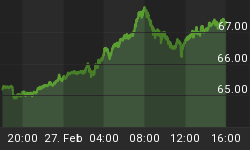When the news of Europe's unprecedented $1 trillion bailout package was announced last weekend, the storyline behind this "solution" to the sovereign debt crisis seemed (even at market-driven news outlets such as Bloomberg) rather skewed towards politicians' cries of speculators "attacking the currencies" of heavily indebted nations (where have we heard that before?).
Now that we've had a few days to digest the European policymakers' move to "defend" the euro, I thought it might be interesting to hear from some of the people who saw this crisis developing and are now explaining, in plain English, what these bailout arrangements will mean for all of Europe and for the rest of the world.
First, we'll point you to yesterday's post highlighting Der Spiegel's interview with Nouriel Roubini. If you missed it, be sure to read Roubini's views on sovereign debt issues and why Greece is just "the tip of the iceberg" for problems with government debt.
Peter Schiff offers his view of the Greek crisis and the problems (namely inflation and increased moral hazard) which are sure to come from their "American style" bailout.
Jim Rogers tells Bloomberg TV that while he is currently long the euro, he sees major problems for the currency longer term thanks to the debasement that is sure to come as a result of this latest move.
As Jim points out, the $1 trillion backing this bailout has to come from somewhere; this money will be printed, borrowed, or raised by increased taxation. Those who receive the money will, of course, benefit. Everyone else who pays for this bailout (via taxation or indirectly through inflation) will be much worse off.
You may recall that back in March, Rogers was telling Bloomberg viewers that a Greek bankruptcy would be good for the euro. Now that the euro's very survival is threatened by the longer-term ramifications of these bailout agreements, it seems more people are coming around to Jim's point of view.
Marc Faber sat down with Pimm Foxx to discuss, among other subjects, the situation in Greece and the inflationary consequences of Europe's bailout (which, as Marc notes, is largely for the benefit of the European banks). Faber's frank talk is always a refreshing tonic to the nonsense and outright lies we usually get from the talking heads in the cable TV universe.
Finally, Jim Rickards talks with Eric King about the European bailout package and the IMF's move to create a "one world currency" from Special Drawing Rights (SDRs). Pay close attention to Jim's discussion of how the IMF creates this money, and why the EU & IMF bailout merely "replaces one type of debt with more [of another] debt".

















